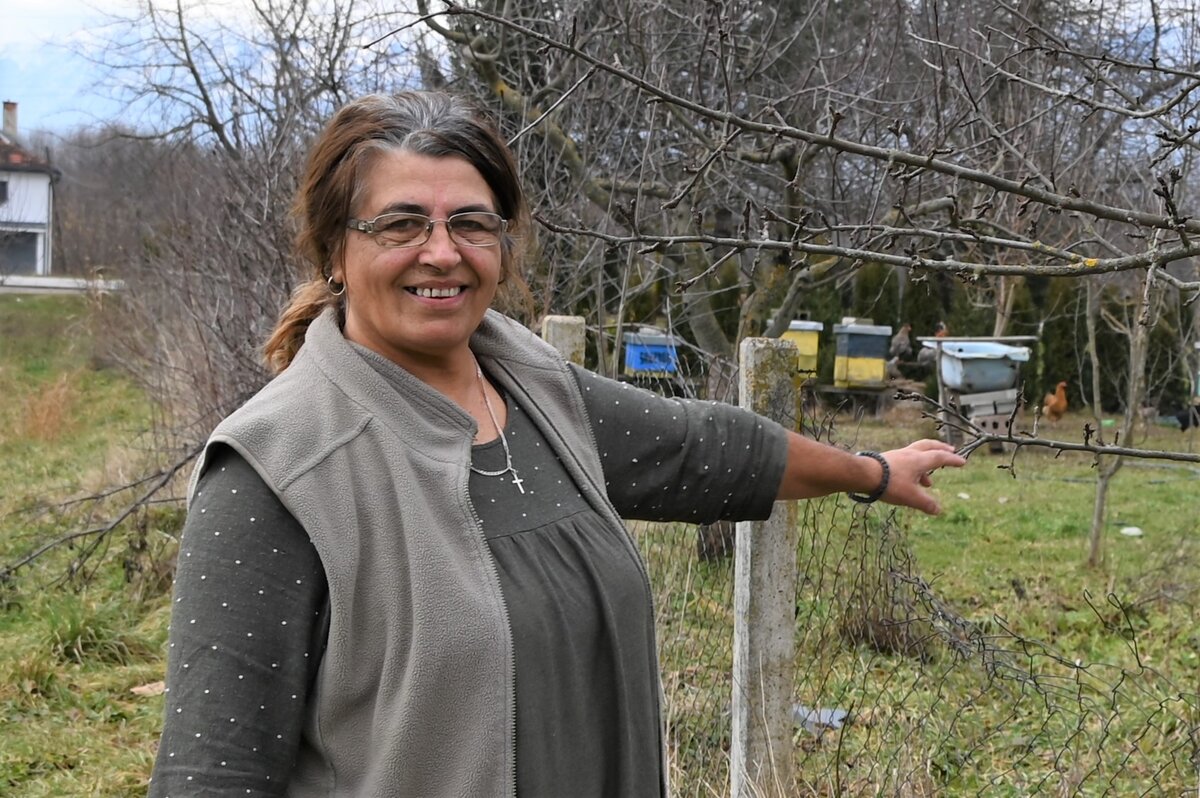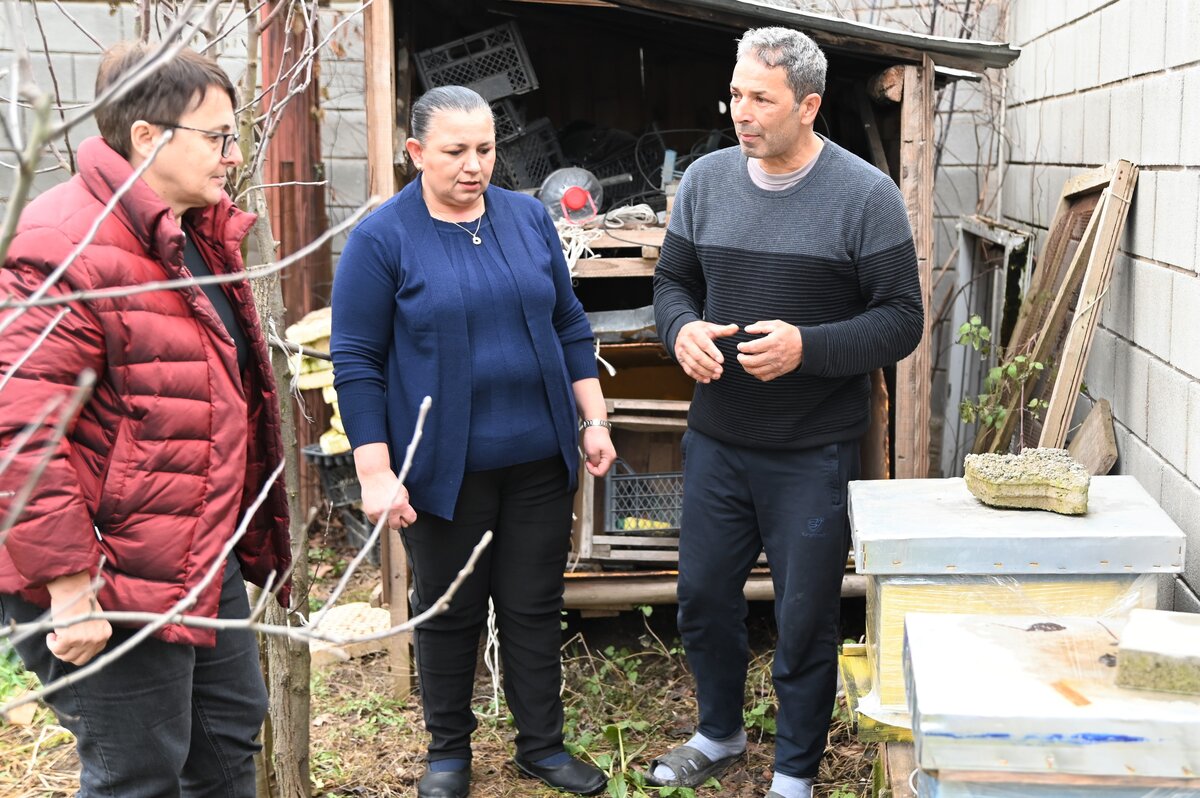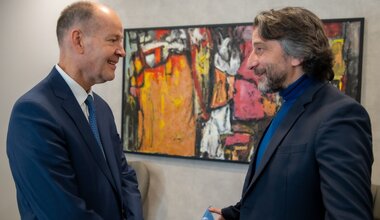Buzzing Harmony: Beekeeping Bonds Communities in Kosovo
While bees take their winter break, the beekeepers in Kosovo are far from idle.
Rafeta Halilaj, a Kosovo-Bosniak woman, is one of 20 beneficiaries engaged with Beekeepers Association Melissa (Albanian: Shoqata Bletare Melissa), a non-governmental organization that runs an UNMIK-funded confidence-building initiative in Istog/Istok municipality focused on empowering women by introducing them to beekeeping and honey production as an additional activity and source of income, while creating bonds across communities.
“In winter, we ensure the bees are doing well. We don't disturb them much, but on warmer days, we check the hives and add food as needed. Now, we are gearing up for spring and for our new responsibilities towards the bees,” Refata said.
The project, now in its second year, has already equipped 20 women and their families with four beehives and two bee colonies each, and provided a comprehensive training in the basics of beekeeping, bee feeding, pest control, and protection from diseases.
While focusing on empowering women with financial independence, the project directly benefits families, including all men who wish to take part in this activity alongside their wives. Under optimal conditions, each hive can yield 20 to 40 kilos of honey per year, reaching an average price of 20 to 25 EUR per kilo.
Fostering trust across diverse communities
Rafeta now works with Kumrije Maxharra, the head of Beekeepers Association Melissa , to multiply bee colonies and develop their apiculture businesses. This venture extends its reach to many Kosovo communities, including Albanians, Bosniaks, Egyptians, Montenegrins, and Serbs.
Svetlana Đorić and her husband Miodrag Popović, a Kosovo-Montenegrin couple, returned to Istog/Istok in 2015, after a 16-year absence due to conflict. Svetlana, now actively engaged in learning about beekeeping, alongside her other agricultural pursuits, remarked: “We have everything we need here. We only need to pay for bread, milk, cleaning products, and electricity. The rest we produce ourselves.”

With full appreciation for the multi-ethnic society she lives in, with her old neighbors still around, Svetlana also emphasized that the beekeeping project exposes younger generations to the diversity they have not had a pleasure of experiencing in the same way she did when she was younger.
“We all gather at training sessions, socialize, exchange stories and experiences, and forge new friendships, regardless of ethnicity. That is a big bonus. My husband and I speak Albanian, but for those who are not multilingual, Kumrije provides interpreters”, she added.

UNMIK’s ongoing support for Kumrije’s initiative is part of a broader commitment toward engaging various communities in Kosovo to reignite positive exchanges and mutual understanding. Over the past 11 years, UNMIK has backed more than 220 confidence-building projects, investing over USD 4 million to support local communities, to enhance the quality inter-ethnic relations and to forge connections between the younger and older generations.
 UN
UN United Nations Peacekeeping
United Nations Peacekeeping





